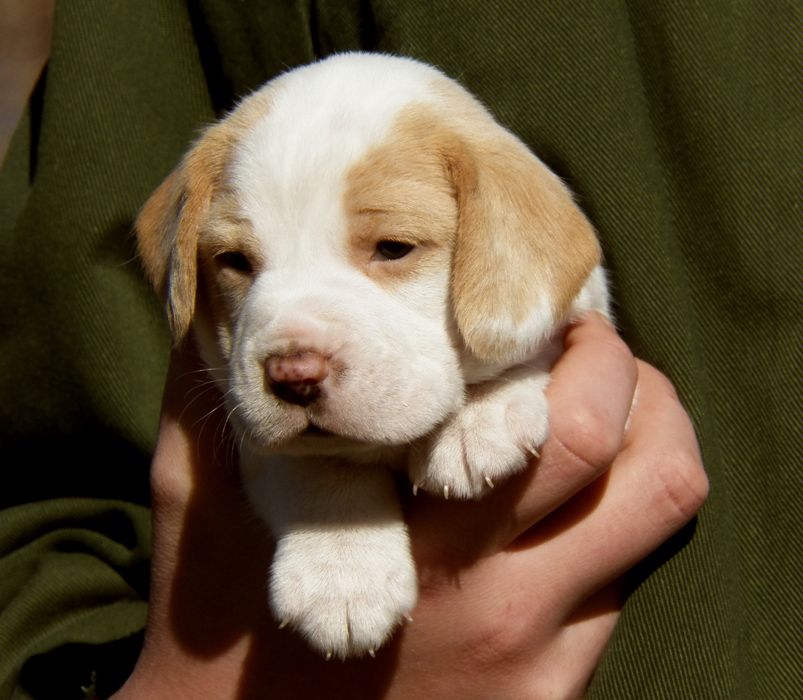Posts by pwsadmin
Care and Upkeep
Beagles are relatively low-maintenance. However, they need a fenced yard and either vigorous game time or a long leash walk daily. Some Beagles can be clever escape artists and will climb out of dog runs or over fences if determined. The beagle is not a good candidate for off-leash hiking, as it tends to follow…
Read MoreTo feed a beagle puppy, you should123:
Beagle Puppies
What Are Dog Feeding Charts? Dog feeding charts are required on dog food packaging. The layout of the chart, however, can vary from brand to brand. If you’re switching brands, pay close attention to ensure you’re feeding your dog the correct amount based on his age and weight. According to Dr. Harris, “Dog feeding charts…
Read MoreThe Secret Lives of Beagles: Your Complete Guide to Owning a Beagle
Are beagles friendly? The good news: beagles are fast friends. Even if you have an older pet or a beagle rescue dog, this breed is ultimately easy to win over, despite an initial wariness toward strangers. Because of this, the beagle personality is easy to embrace. Creating a rapport and enjoying time together shouldn’t be…
Read MoreA lemon is a purebred beagle.
A Lemon Beagle is a purebred beagle, characterized by its white and lemon-hued coat with hazel-colored eyes. Upon being born, most lemon beagles are nearly completely white, however the lemon color begins to reveal itself as they age into adulthood. Lemon beagles are uncommon to discover, and as such their purchase price is higher than…
Read MoreGift of Gods
Dogs who may have been Snoopy’s ancestors appear in the work of fifth-century B.C. Greek historian Xenophon. “Hunting and hounds were first an invention of the gods,” he wrote in his treatise on hunting, in which he described small dogs used for chasing hares.
There are reports of small pack-hounds employed to hunt rabbit and hare in England long before the Roman legions arrived in 55 B.C. An English authority called the Beagle the “foothound of our country, indigenous to the soil.” By the 1500s, most English gentlemen had packs of large hounds that tracked deer, and smaller hounds that tracked hares.
Ch. Masterley Lenerts Anda, Beagle. c. 1948
Courtesy of the AKC Library and Archives
Modern-day Beagles are thought to have descended from Talbot Hounds, large white scenthounds that accompanied William the Conqueror into Britain during the 11th century. Another now-extinct breed that may have contributed some DNA is the Irish Kerry beagle, small black-and-tan dogs similar to Bloodhounds.
The name Beagle first appeared in English literature in 1475. It was mentioned in the works of no lesser literary lights than Chaucer and Shakespeare. “She’s a beagle, true-bred, and one that adores me,” says Sir Toby Belch in Twelfth Night.
Queen Elizabeth I was among the many Beagle enthusiasts who owned one of the variations on the basic design. Her “pocket beagles” stood about nine inches tall. These tiny hounds were also known as “singing beagles” or “glove beagles.” They were even said to be able easily stand on an outstretched hand.
Beagle-like dogs appeared in America sometime before the Civil War. However, the breed wasn’t firmly established until the 1880s. In 1885, a Beagle named Blunder became the first to be registered by the AKC. In the 1890s, the recently formed National Beagle Club held its first field trials.
Approved by Brynn White in December 2017
Courtesy of the AKC Library and Archives
Folk Hero
By the mid-20th century, their cute looks and merry personalities had placed Beagles in homes all over the country. When Norman Rockwell wanted a dog for his hearth-and-home scenes of American life, he often picked a Beagle. You see the breed everywhere in his paintings, whether it’s a young boy bringing his dog to the vet or a pair of pals on a fishing trip. In Rockwell’s iconic May 26, 1943, Saturday Evening Post cover “The Homecoming G.I.,” the first kisses the soldier is likely to receive will come from the little tricolor hound darting out to greet him.
Cartoonist Charles M. Schulz gave the breed a huge boost when he introduced a canine character named Snoopy on October 4, 1950, two days after the debut of the Peanuts comic strip. Pretty soon, Snoopy had leapt from the strip, read by 355 million people around the world, to books, television, the Broadway stage, greeting cards, pajamas, and more. He even appears in parades, particularly the Macy’s Thanksgiving Day Parade, where his balloon dominates the festivities more than four decades after his first appearance.
For Snoopy, and only Snoopy, the AKC made an exception to its rule that dogs must be real to be registered, giving him the honorary number of Beagle-1.
Snoopy no doubt played a large role in bringing the Beagle to the top of the AKC charts in 1953, after trailing behind the Cocker Spaniel for six years.
Charles Schulz Peanuts storyboard ink/ink wash 20th c Beagle Judson Streicher
Courtesy of the AKC Museum of the Dog
Flap Heard Round the World
No pair of White House hounds stirred up as big a fuss as Beagle littermates, “Him” and “Her,” born on June 27, 1963, pets of President Lyndon B. Johnson. In April 1964, the president was meeting with a task force on increasing foreign investment in the U.S. when the dogs came running over. Johnson gave them some treats and played with them a bit. Then, for no particular reason, he lifted them up by their ears until they yelped.
“You see what a dog will do when he gets in a crowd of bankers?” he said. It was a joke that fell very flat.
The “great earlift,” as it soon became known, outraged dog lovers worldwide. “I’ve never heard it said that this is good for beagles,” an official with the AKC told the Associated Press. Howls of protest sounded for months. “If somebody picked you up by the ears, you’d yelp, too,” snarled the New York Society for the Prevention of Cruelty to Animals.
In January 1965, despite objections, the Pasadena Rose parade featured a float, named “Ouch.” The float consisted of a 20-foot Beagle with long floppy ears, wearing a 10-gallon hat.
Courtesy of the AKC Library and Archives
Smells Like Victory
Cute as it is, that sniffer is nothing to sneeze at, packed with more than 225 million scent receptors. Humans, despite their much larger size, have a mere five million.
“A nose on paws,” is how the breed is often described; they’re practically unbeatable in certain sports, like hunting and tracking, and indispensable for some kinds of work. Beagles are ideal sniffer dogs, packing enormous scenting powers into a compact body.
“Roscoe,” the Bed Bug Sniffing Dog for Bell Environmental Services, for example, has been a celebrity in New York City for years. But he is by no means the only member of his breed performing this important job. The Beagle Brigade, a program started by the U.S. Department of Agriculture in 1984, has aided in about 75,000 seizures of illegal foods at airports, seaports, and border crossings.
Today, the Beagle has remained in the top 10 dog breeds. They’re never far from the public’s heart, mind, and headlines.
Read MoreAppearance Of A Lemon Beagle
Other than their lemon hued appearance, which is attributed to their lack of pigmentation on their bodies, they share the common characteristics of any other modern-day beagle. The lemon reference is simply referencing their shading. As a matter of fact, a purebred beagle does not have the gene for to be one solid color. Instead,…
Read MoreIdeal Human for a Beagle Beagles
Beagles are smart, stubborn, food-motivated, and easily distracted by smells. Training is most effective in quiet, distraction-free environments with consistency. Keep training sessions short to help your Beagle focus, and use positive reinforcement with praise and treats to motivate good behavior. Experienced dog parents may consider an online dog trainer to monitor subtle behaviors and…
Read More



